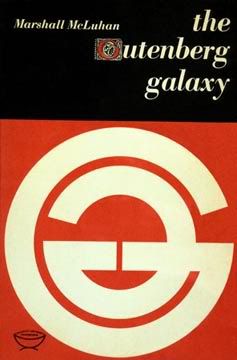Thomas Doherty: Cold War, Cool Medium: Television, McCarthyism, and American Culture (2003)
Filed under book | Tags: · cold war, film, history, mass media, politics, public broadcasting, television, united states

Conventional wisdom holds that television was a co-conspirator in the repressions of Cold War America, that it was a facilitator to the blacklist and handmaiden to McCarthyism. But Thomas Doherty argues that, through the influence of television, America actually became a more open and tolerant place. Although many books have been written about this period, Cold War, Cool Medium is the only one to examine it through the lens of television programming.
To the unjaded viewership of Cold War America, the television set was not a harbinger of intellectual degradation and moral decay, but a thrilling new household appliance capable of bringing the wonders of the world directly into the home. The “cool medium” permeated the lives of every American, quickly becoming one of the most powerful cultural forces of the twentieth century. While television has frequently been blamed for spurring the rise of Senator Joseph McCarthy, it was also the national stage upon which America witnessed—and ultimately welcomed—his downfall. In this provocative and nuanced cultural history, Doherty chronicles some of the most fascinating and ideologically charged episodes in television history: the warm-hearted Jewish sitcom The Goldbergs; the subversive threat from I Love Lucy; the sermons of Fulton J. Sheen on Life Is Worth Living; the anticommunist series I Led 3 Lives; the legendary jousts between Edward R. Murrow and Joseph McCarthy on See It Now; and the hypnotic, 188-hour political spectacle that was the Army-McCarthy hearings.
By rerunning the programs, freezing the frames, and reading between the lines, Cold War, Cool Medium paints a picture of Cold War America that belies many black-and-white clichés. Doherty not only details how the blacklist operated within the television industry but also how the shows themselves struggled to defy it, arguing that television was preprogrammed to reinforce the very freedoms that McCarthyism attempted to curtail.
Publisher Columbia University Press, 2003
ISBN 0231129521, 9780231129527
305 pages
PDF (updated on 2014-9-5)
Comment (0)Marshall McLuhan: The Gutenberg Galaxy: The Making of Typographic Man (1962–) [EN, BR-PT, CZ]
Filed under book | Tags: · global village, literacy, mass media, movable type, print, renaissance, scholasticism, technology, typography, writing

“In this book, McLuhan analyzes the effects of mass media, especially the printing press, on European culture and human consciousness. It popularized the term global village, which refers to the idea that mass communication allows a village-like mindset to apply to the entire world; and Gutenberg Galaxy, which we may regard today to refer to the accumulated body of recorded works of human art and knowledge, especially books.
McLuhan studies the emergence of what he calls Gutenberg Man, the subject produced by the change of consciousness wrought by the advent of the printed book. Apropos of his axiom, “The medium is the message,” McLuhan argues that technologies are not simply inventions which people employ but are the means by which people are re-invented. The invention of movable type was the decisive moment in the change from a culture in which all the senses partook of a common interplay to a tyranny of the visual. He also argued that the development of the printing press led to the creation of nationalism, dualism, domination of rationalism, automatisation of scientific research, uniformation and standardisation of culture and alienation of individuals.”
Publisher University of Toronto Press, 1962
ISBN 0802060412, 9780802060419
300 pages
The Gutenberg Galaxy (English, updated on 2021-1-6)
A galáxia de Gutenberg (BR-Portuguese, trans. Leônidas Gontigo de Carvalho and Anísio Teixeira, 1972, added on 2017-3-12)
Gutenbergova galaxie (Czech, 2000, added on 2017-3-12)
Don Ihde: Technology and the Lifeworld: From Garden to Earth (1990)
Filed under book | Tags: · nature, philosophy of technology, technology

The role of tools and instruments in our relation to the earth and the ways in which technologies are culturally embedded provide the foci of this thought-provoking book.
Publisher Indiana University Press, 1990
ISBN 0253329000, 9780253329004
226 pages
EPUB (updated on 2014-11-18)
Comments (2)
